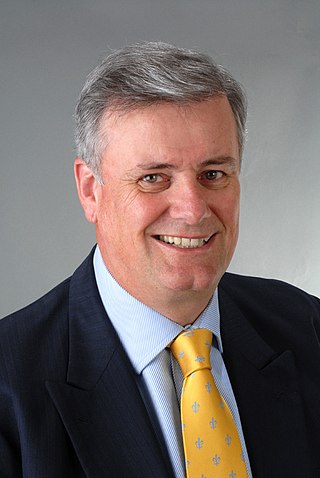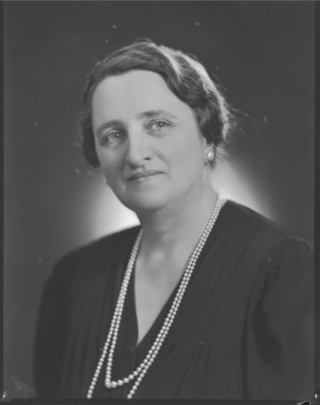Related Research Articles

South Yarra is an inner-city suburb in Melbourne, Victoria, Australia, 4 km south-east of Melbourne's Central Business District, located within the Cities of Melbourne and Stonnington local government areas. South Yarra recorded a population of 25,028 at the 2021 census.

Monash Medical Centre (MMC) is a teaching hospital in Melbourne, Australia. It provides specialist tertiary-level healthcare to the Melbourne's south-east.

The Peter MacCallum Cancer Centre, also known as the Peter MacCallum Cancer Institute and commonly abbreviated as Peter Mac, is an Australian oncology research institute, cancer treatment and professional oncologist training centre located in Melbourne, Victoria. The centre is named in honour of Sir Peter MacCallum. Since June 2016, the centre has been located within the Victorian Comprehensive Cancer Centre (VCCC) in Parkville.

The Alfred Hospital, also known as The Alfred or Alfred Hospital, is a leading tertiary hospital in Melbourne, Victoria. It is the second oldest hospital in Victoria, and the oldest Melbourne hospital still operating on its original site. The Alfred Hospital is one of two major adult trauma centres in Victoria, and houses the largest intensive care unit (ICU) in Australia. In 2021 it was ranked as one of the world's best hospitals. It is located at the corner of Commercial and Punt Roads, Prahran, opposite Fawkner Park.

Vera Scantlebury Brown OBE was an Australian medical practitioner and pediatrician in Victoria, Australia.
Richard Graeme Larkins is the former Chancellor of La Trobe University. He was the Vice-Chancellor and President of Monash University from 2003 to June 2009. Prior to this, he had a distinguished career in medicine, scientific research and academic management.
Sir Edward Byrne is a neuroscientist who served as Principal of King's College London from August 2014 until January 2021. He was previously Vice-Chancellor of Monash University.

Wulf H. Utian is a physician, reproductive endocrinologist, clinical researcher, and academic women's health department administrator. He is best known for first recognizing menopause as a potential health-related issue. He is the co-founder of the International Menopause Society and founder of the North American Menopause Society. Previously he has worked as a medical department Director at the Mount Sinai Medical Center, the University Hospitals of Cleveland, and academic chairman of the department of Reproductive Biology at Case Western Reserve University School of Medicine. He is currently the Arthur H. Bill Professor Emeritus of Reproductive Biology at the Case Western Reserve University School of Medicine, a consultant in women's health, and Scientific Director Emeritus of Rapid Medical Research Inc.
Professor Ian Meredith is an Australian Cardiologist best known for his studies in the field of Interventional Cardiology and Clinical Cardiology. He is currently the Global Chief Medical Officer and Executive Vice President at Boston Scientific. He was previously a Professor of Cardiology for Monash University, the Director of MonashHeart and Monash Health in Melbourne, Australia, and an Executive Director of the Monash Cardiovascular Research Centre, Monash Health. In 2012 he was appointed a Member of the Order of Australia for his work as a clinician and a researcher in cardiology as well as his contributions as an advocate and advisor to the public health organisations.
Lorraine Dennerstein M.B.B.S., Ph.D., D.P.M., M.R.A.N.Z.C.P., F.R.A.N.Z.C.P., HonDMedSc is a leading Australian researcher and practicing psychiatrist specialising in women's mental and sexual health.
Penny Wise Budoff was an American physician. She was a family practitioner, and a clinical associate professor of family medicine at the State University of New York at Stony Brook. She is known for her research, which established that menstrual cramping is a physical phenomenon rather than a psychological one. She wrote two books on women's health.
Lorna Lloyd-Green, was an Australian obstetrician-gynecologist and the president of the Medical Women's International Association from 1968 to 1972. She was the first woman to be elected a fellow of the Australian Medical Association. As one of the first women physicians in Melbourne, she advocated for women in medicine throughout her career, and is credited for playing the principal role in achieving equal pay for women physicians in Australia.

Alastair Harvey MacLennan,, MB ChB, MD, FRCOG, FRANZCOG is a Scottish-Australian physician, professor of obstetrics and gynaecology, medical researcher, and a community health advocate. He studied and practised medicine in Glasgow, Chicago, and Oxford before moving to Australia in 1977 to take up a position at the University of Adelaide, where he went on to become the Professor and Head of the Discipline of Obstetrics and Gynaecology in 2006. He retired from his full-time academic position in 2013, and he is now Emeritus Professor of Medicine. He leads research projects at the Robinson Research Institute, and he is Head of the university's Cerebral Palsy Research Group.
The Victorian Medical Women's Society (VMWS) is the longest-running association of women medical practitioners and medical students. It was established in Melbourne, Australia in 1895/1896 and is one of the oldest active medical organisations in the world. The aim of the society was to set a benchmark in women's health around Victoria, and to advance the professional development of medical women, through education, research, and the improvement of professional opportunities. The state-run society became affiliated with the national body, Australian Federation of Medical Women, and thereby the Medical Women's International Association.
Jayashri Kulkarni is a Professor of Psychiatry at the Alfred Health and Monash University who works in the area of women's mental health. She has written about Premenstrual syndrome. She has used hormones to treat schizophrenia, bipolar disorder and depression in women. She founded and heads the Monash Alfred Psychiatry Research Centre, a clinical psychiatry research centre which currently has more than 160 staff and students.

Duru Shah is a Mumbai-based gynaecologist academic and women activist. She is the Founder President of the PCOS Society, India and a promoter of adolescent girls and women's health and infertility in India. Shah is also the promoter of Metropolis Healthcare Ltd. She is also a Consultant ObGyn.: Breach Candy Hospital, Jaslok Hospital, Mumbai.
Janet Hailes Michelmore is the founder and chief executive officer of Jean Hailes for Women's Health, an Australia-wide not-for-profit organisation that provides health information and resources for women of all ages and health professionals.

Eleanor Margrethe "Rita" Stang was an Australian medical practitioner. She was the senior medical officer for schools in Western Australia and adviser on infant health from 1929 until 1955.

Jean Littlejohn was an Australian surgeon, early practitioner of the developing field of otorhinolaryngology, and pioneer of deafness research. She joined the Royal Victorian Eye and Ear Hospital in Melbourne, Australia and maintained a long association with the hospital until her retirement in 1974.
The Women's Healthy Ageing Project (WHAP) is the longest ongoing medical research project examining the health of Australian women. Its landmark studies concern women's heart and brain health, a long-neglected area of specialised research.
References
- 1 2 3 4 5 6 7 8 9 10 11 12 13 14 15 16 17 Hunter, Cecily. "Hailes, Dorothy Jean (1926–1988)". Biography Dorothy Jean Hailes. Retrieved 15 November 2018.
{{cite book}}:|website=ignored (help) - 1 2 "Dr Dorothy Jean Hailes AM (1943)" (PDF). Melbourne Girls Grammar (Information Exchange). Melbourne Girls Grammar. Archived from the original (PDF) on 6 March 2020. Retrieved 15 November 2018.
- ↑ "Australian Red Cross Blood Service". National Library of Australia. Retrieved 15 November 2018.
- ↑ Hailes, Dorothy Jean; Burger, Henry (1987). "Effect Of Combined Implants Of Oestradiol And Testosterone On Libido In Postmenopausal Women". British Medical Journal (Clinical Research Edition). Jstor. 294 (6577): 936–937. doi:10.1136/bmj.294.6584.1418. JSTOR 29526660. PMC 1246581 . PMID 3107663.
- ↑ White, Sue (23 March 2015). "Meet the boss: Janet Michelmore, Executive Director, Jean Hailes for Women's Health". The Sydney Morning Herald. Retrieved 18 November 2020.
- ↑ "Survey Offers Insight into Women's Health". Health Staff Recruitment. Retrieved 15 November 2018.
- ↑ "Jean Hailes Research Unit". Monash University. Retrieved 15 November 2018.